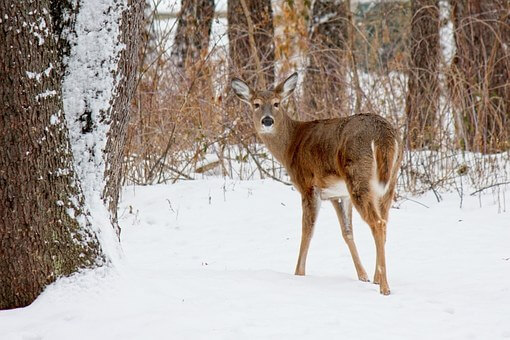Specialists and generalists both critical to forest health
At one time or another, I expect that many of us have wondered if it is better to be a specialist or a generalist — to try to be great at one thing or to be passable at many different things.
Across deep time, Earth’s millions of species have “asked” this same question, again and again: if it is wiser to be an “expert” at exploiting a single, narrow ecological niche or to be able to exist under a wide range of different conditions. Both specialization and generalization are evolutionary strategies that can be advantageous under different circumstances, and Vermont’s forests are filled with both specialists and generalists.

Of our forest trees, sugar maple is an example of a specialist, growing almost exclusively on soils with a relatively high pH and an abundance of calcium and other minerals (what foresters call “enriched” sites). While this means that sugar maple is not well-suited to many places across our landscape, on an enriched site it is extremely competitive, often accounting for more than 75 percent of the trees. By contrast, the closely related red maple is a generalist, capable of growing in swamps and on mountain tops and almost everywhere in between. While you can find some red maple trees in almost any forest, it will rarely be more than a minor component. It is a typical generalist: a jack of all trades and a master of none.
In forests and other ecosystems, we tend to celebrate the specialists — the spring beauty miner bee, which visits only spring beauty flowers; the Dutchman’s breeches, pollinated only by queen bumblebees. Specialists are often species with unique gifts and adaptations, brilliant at accessing a specific food source or utilizing a particular life strategy. However, as Vermont’s native species face the myriad threats, stressors, changes and uncertainties of global change — climate change, non-native invasive plants, pests and pathogens, deforestation, forest fragmentation and more, the generalists, the species that can adapt, are better positioned to survive.
Among wildlife, we know our most successful generalists well: the raccoons, skunks and opossums, the gulls and the crows. All these species are sometimes ridiculed for their “trashy” behavior. Gulls and raccoons have been nicknamed “dump ducks” and “trash pandas,” respectively, but, looked at another way, these species’ ability to exploit the abundance of resources produced and discarded by humans is extremely innovative and adaptive. A crow feeding on roadkill or a black bear eating trash from a dumpster is an example of a generalist species that has adapted to exploit an easy and ubiquitous food source.
While I hope that the previous paragraph helps vindicate and celebrate some of the generalist species that live (and cause mischief) among us, creating a world in which generalists thrive is also problematic for a variety of reasons. For example, all the generalist species mentioned above (except perhaps the gulls) are nest predators; their elevated populations around forest edges, houses and developed areas leads to decreased songbird nesting success.
White-tailed deer are another generalist species, one that has been so successful in our changing world that deer overpopulations damage habitat for tens of thousands of other species and impair the health, function and resilience of ecosystems across much of the North American continent.
In the case of red maple and sugar maple, we expect sugar maple to be one of the tree species most adversely impacted by climate change, whereas red maple is projected to be one of the most successful, largely due to its generalist nature. While it may be that our forests’ futures belong to red maple, we cannot abandon sugar maple entirely. It, and our other specialists, are vital and irreplaceable, supporting crucial natural processes and providing habitat for entire communities of native species. In this changed and changing world, the specialists are often the species that are most under threat, which just means that they are those most in need of our help.
Whether you consider yourself a generalist or a specialist, I’m sure that you admire people that have taken the other road. In our human communities, both specialists and generalists contribute to diverse and functional societies. In forests, both specialists and generalists are vital to the health and the future of these incredible ecosystems.
(Ethan Tapper is the Chittenden County Forester for the Vermont Department of Forests, Parks and Recreation. See what he’s been up to, check out his YouTube channel, sign up for his eNews and read articles he’s written.)

